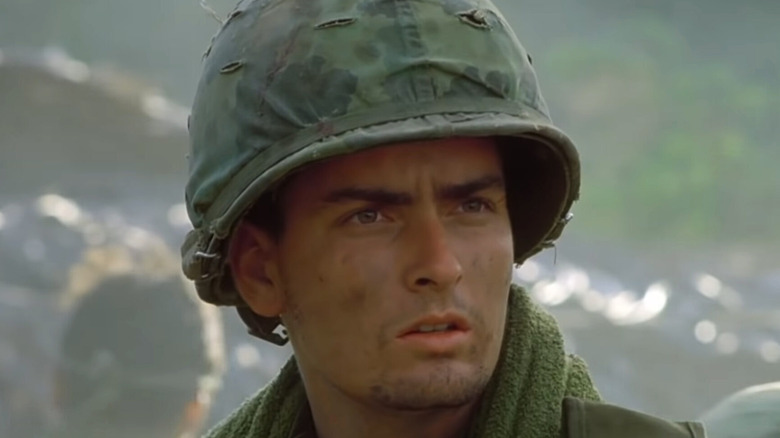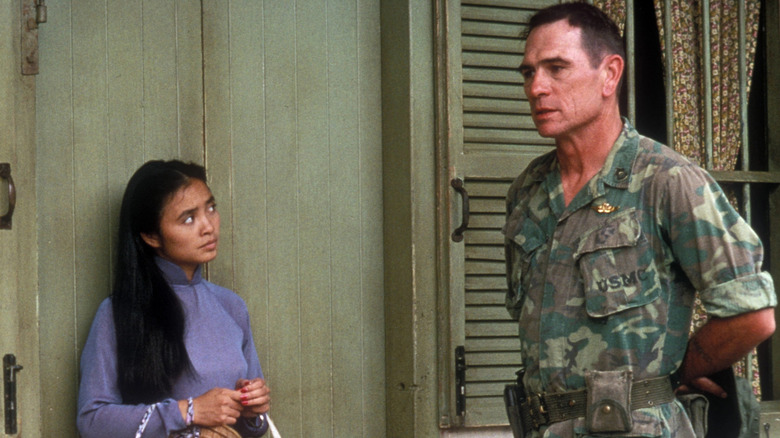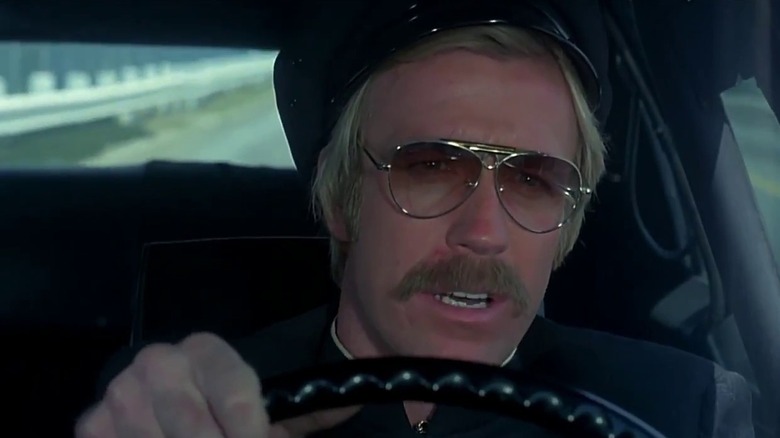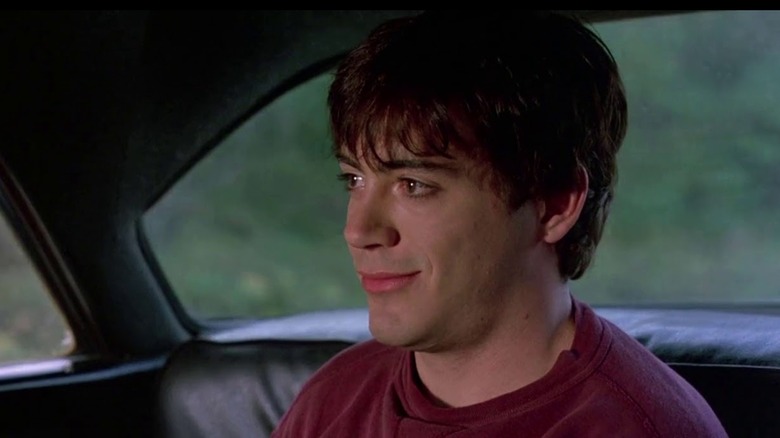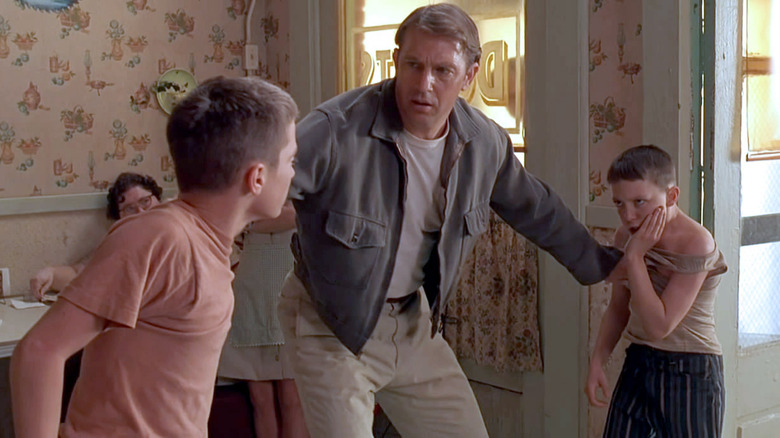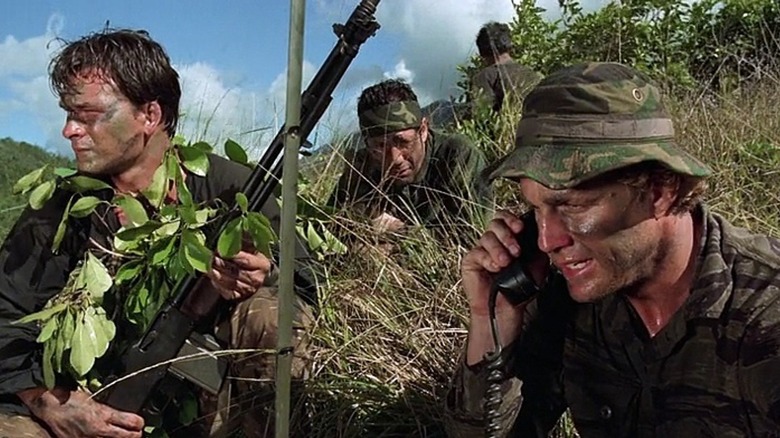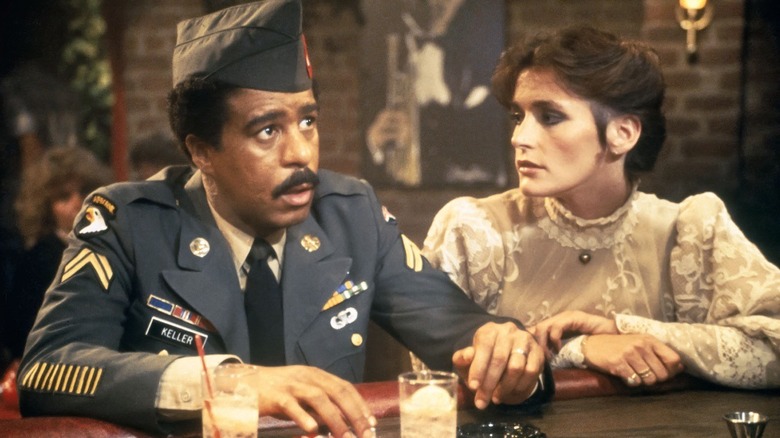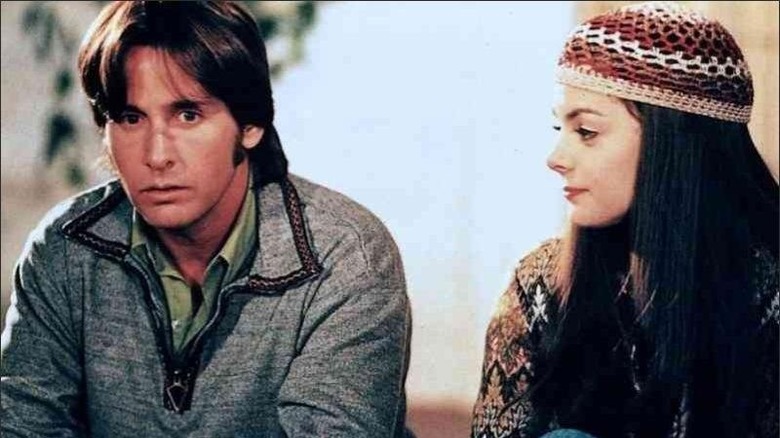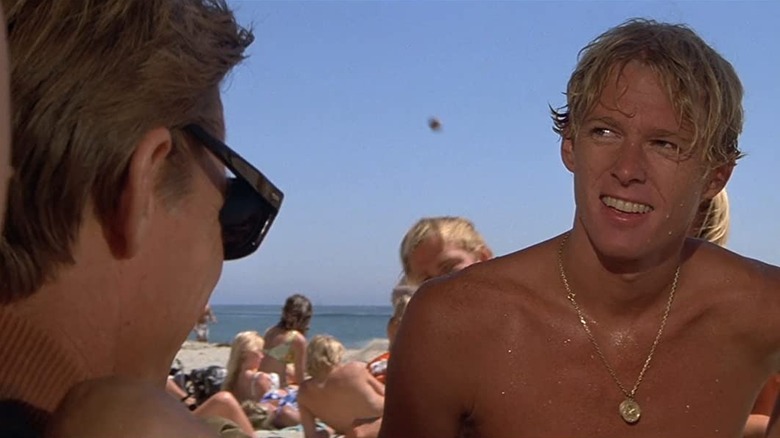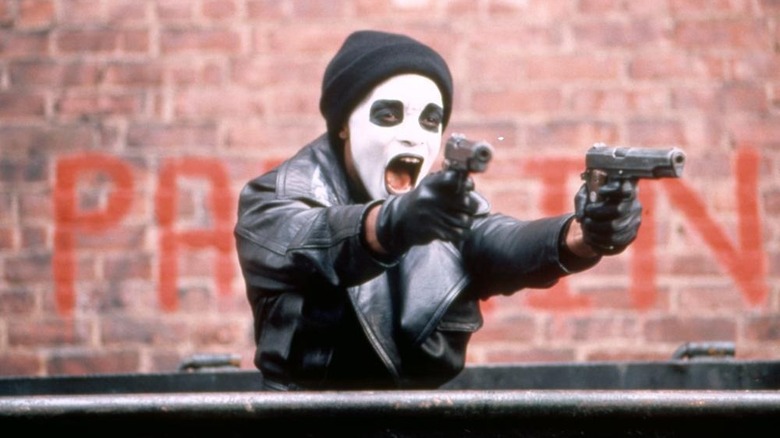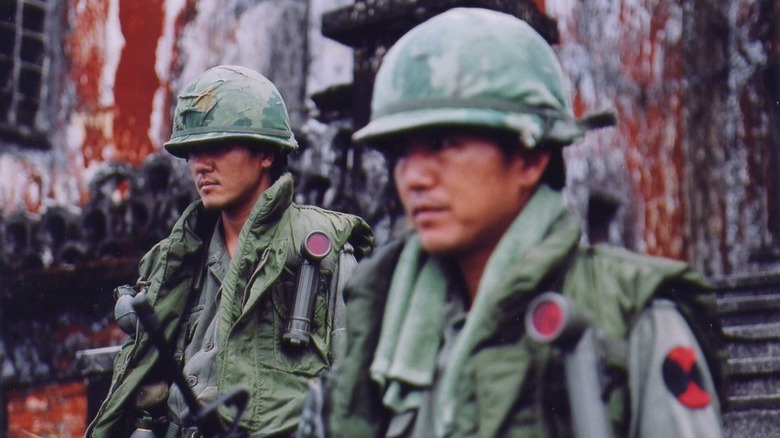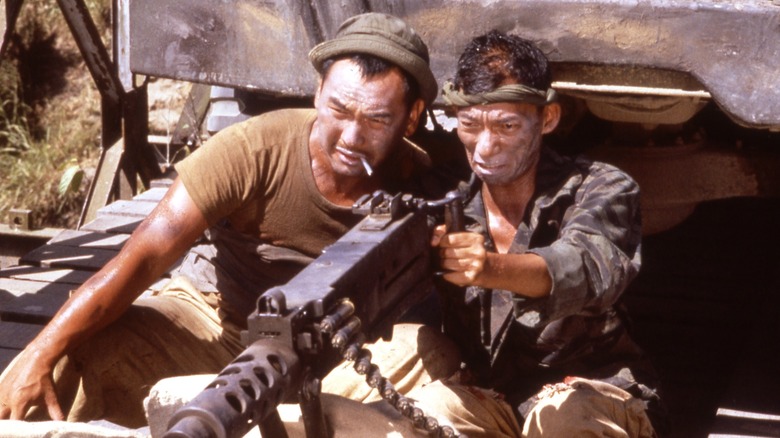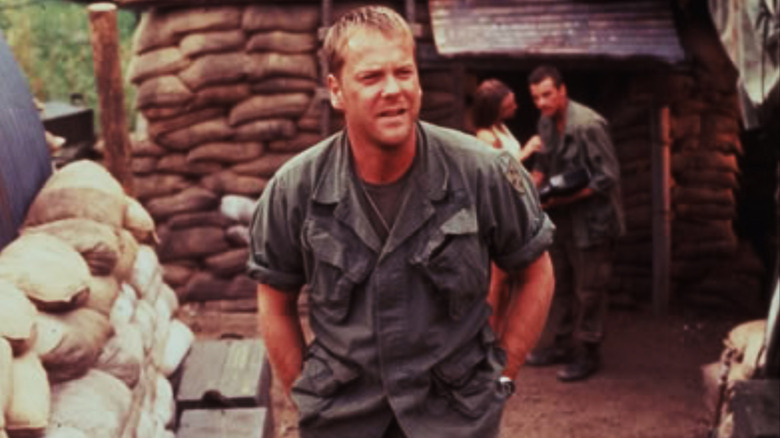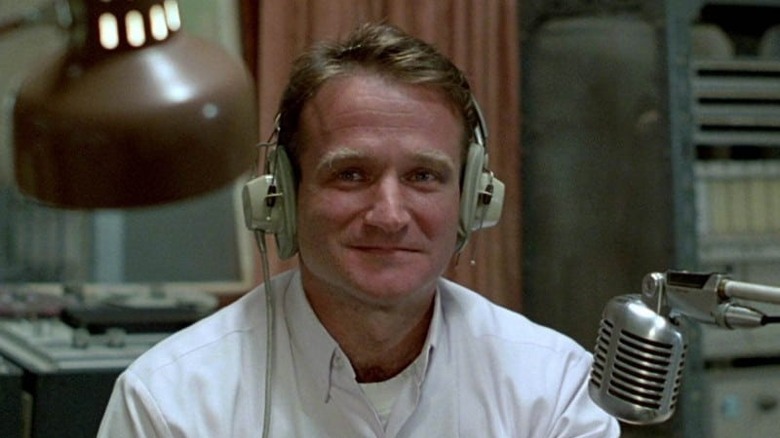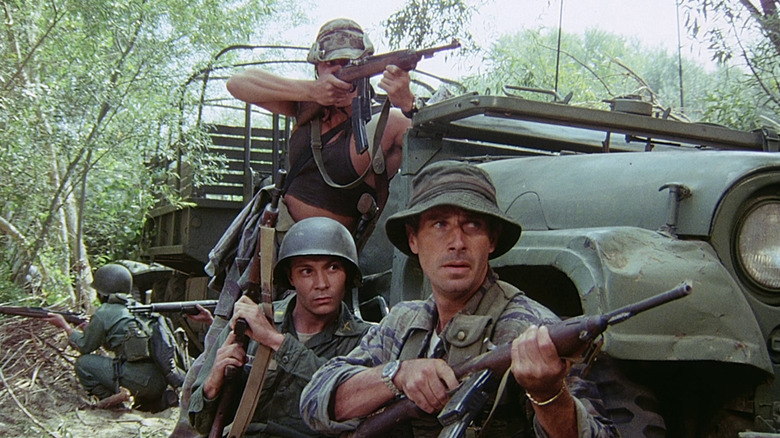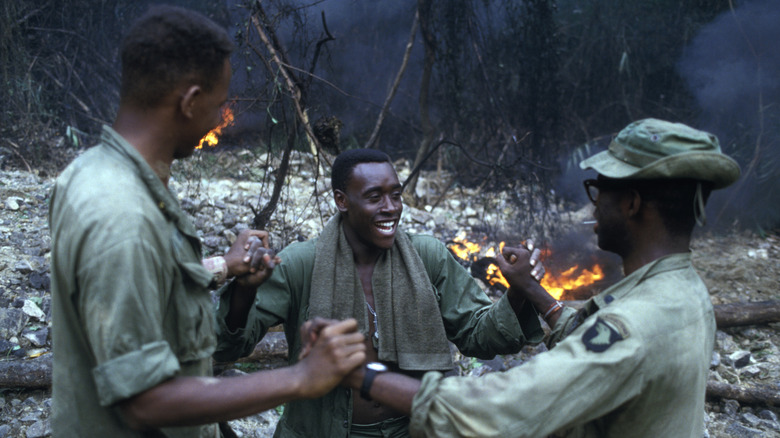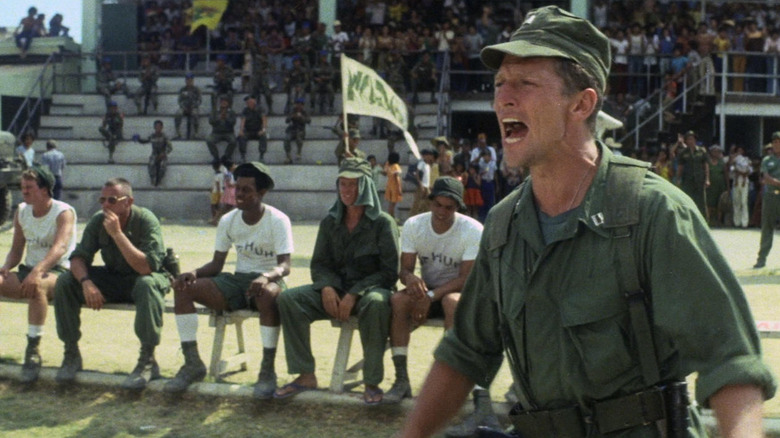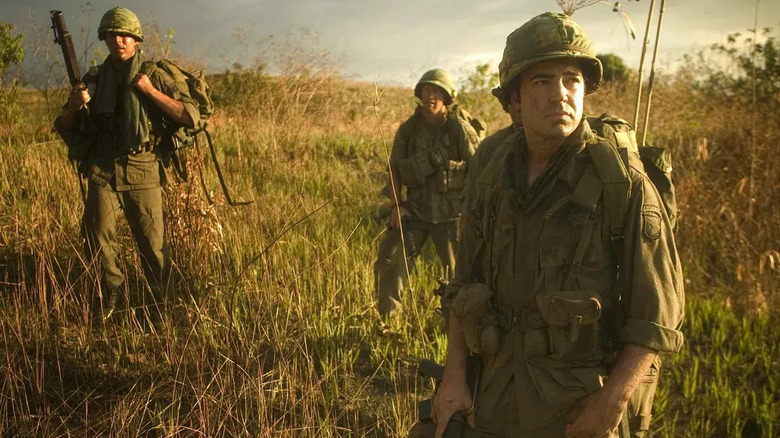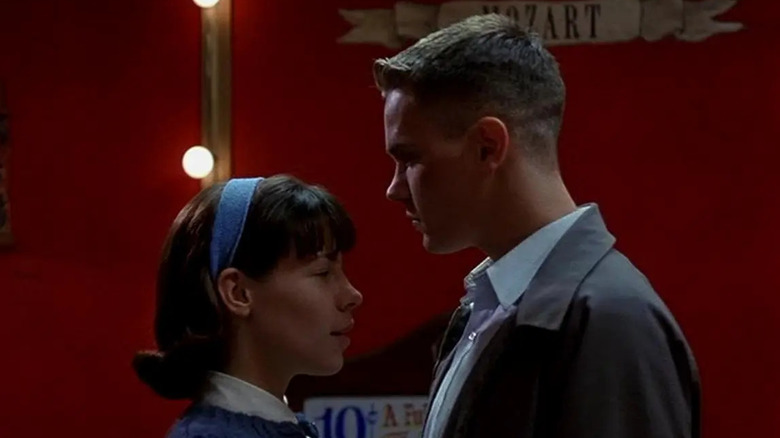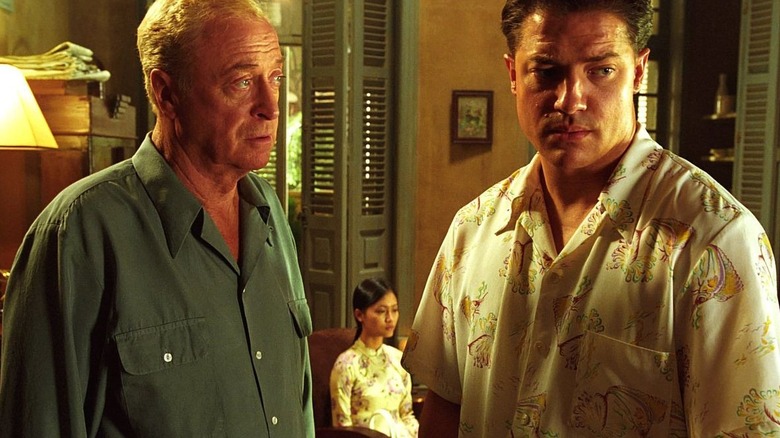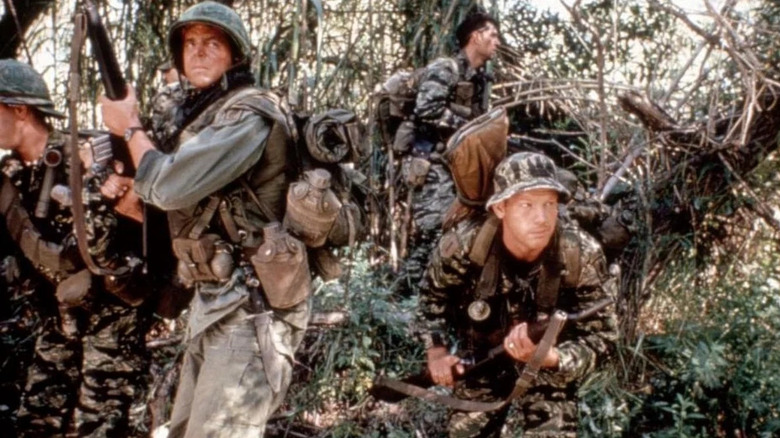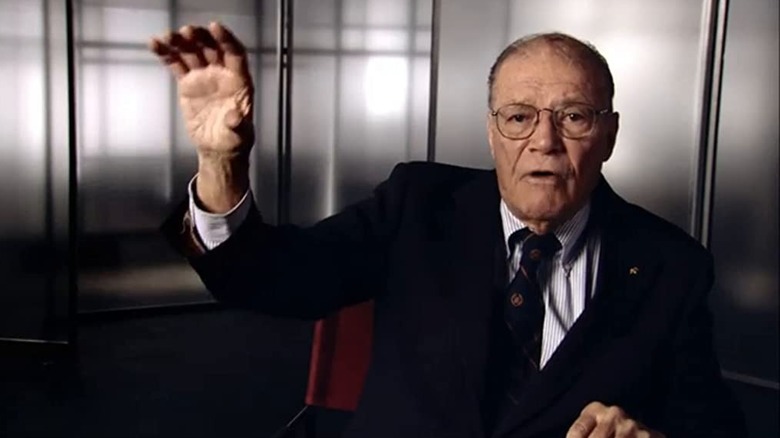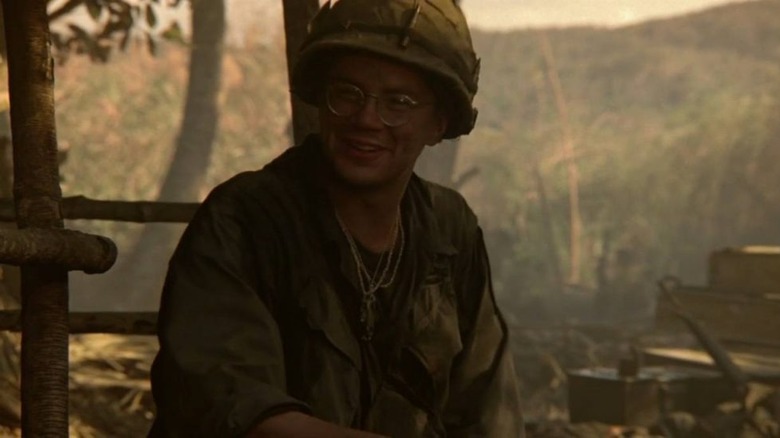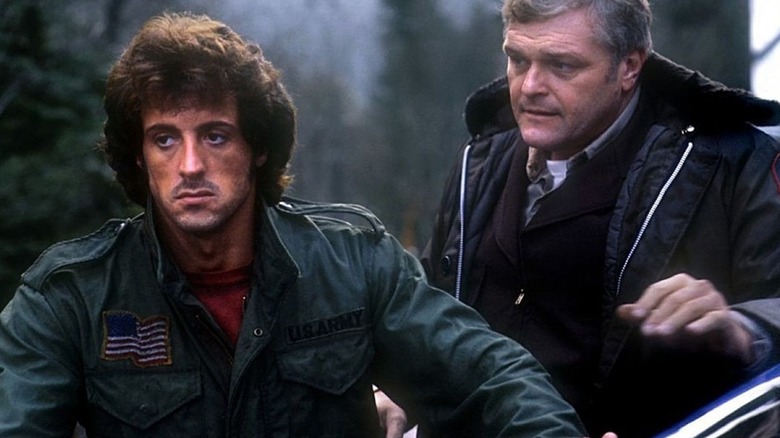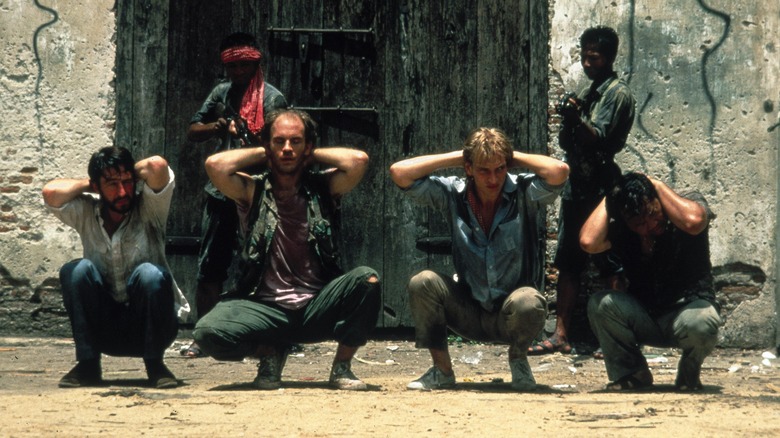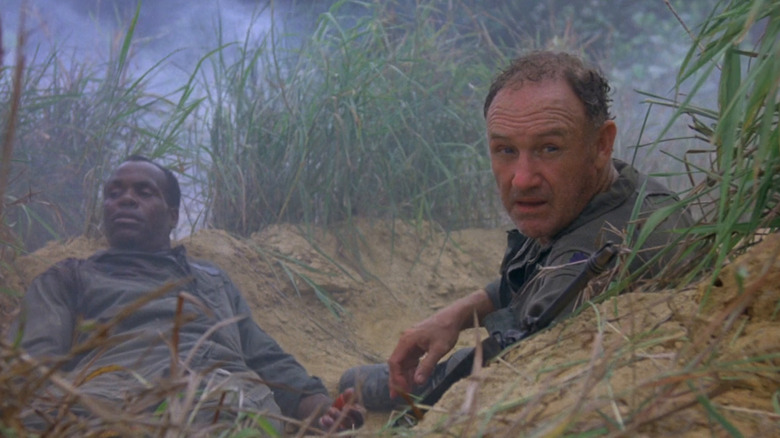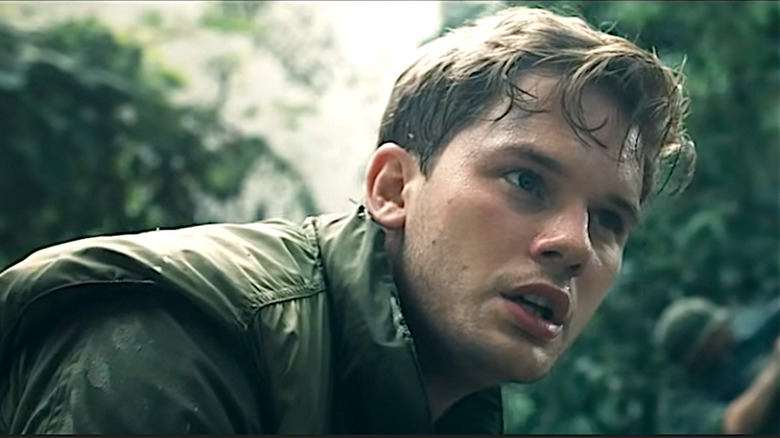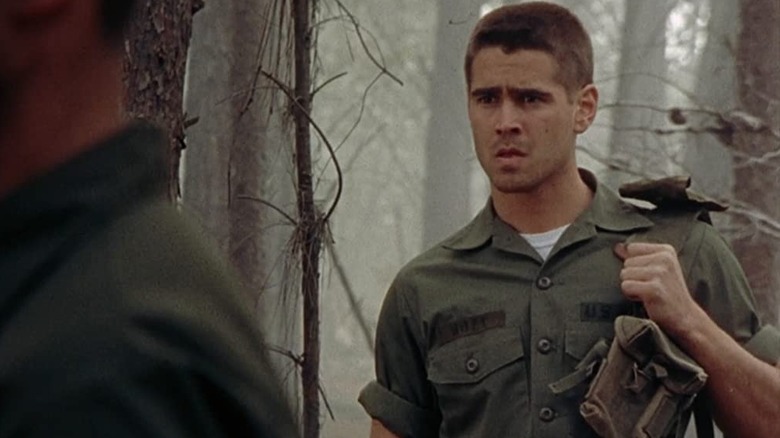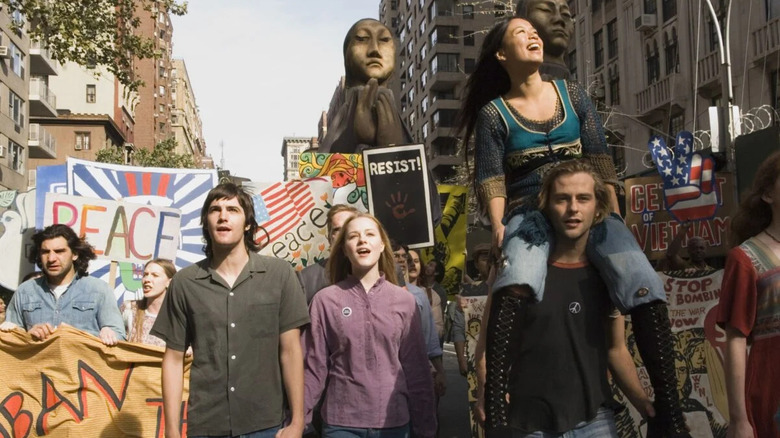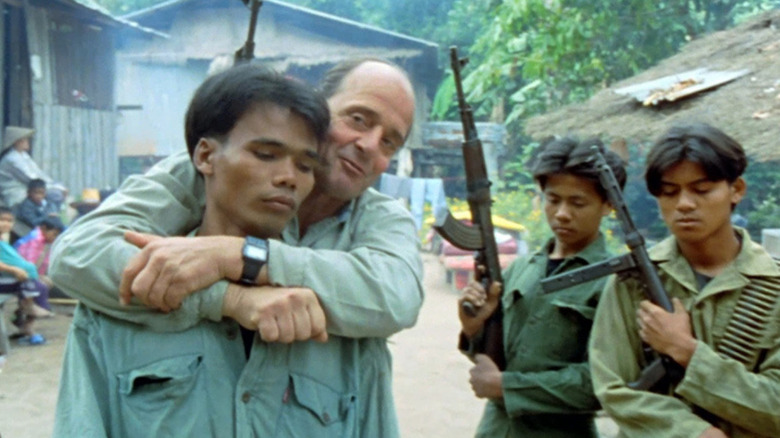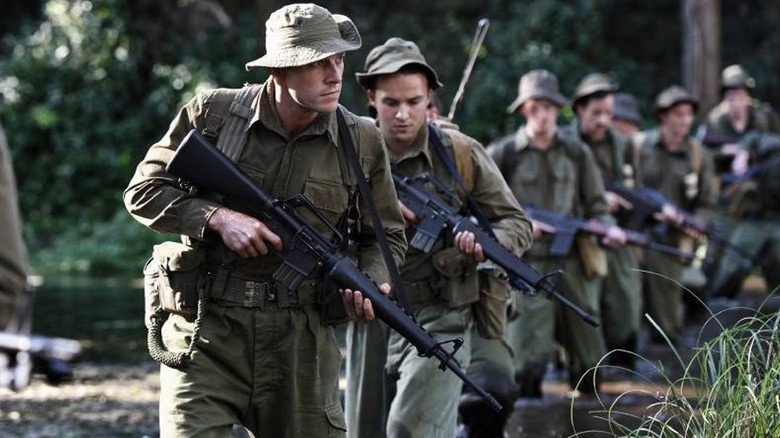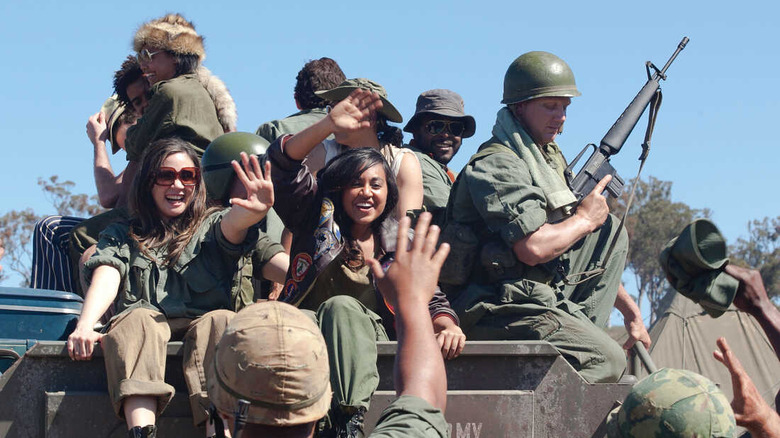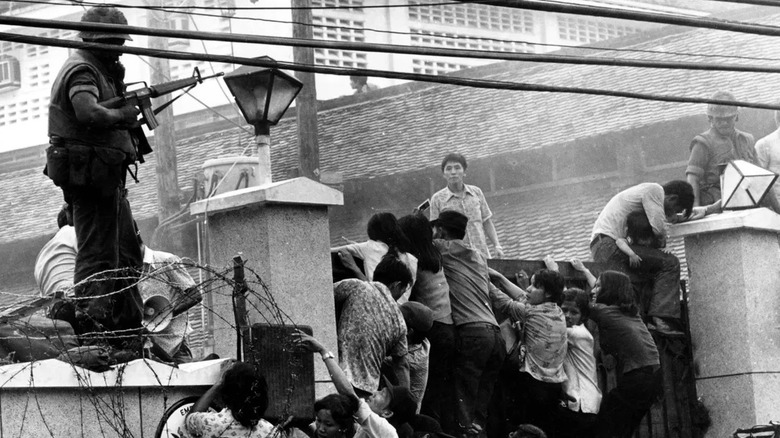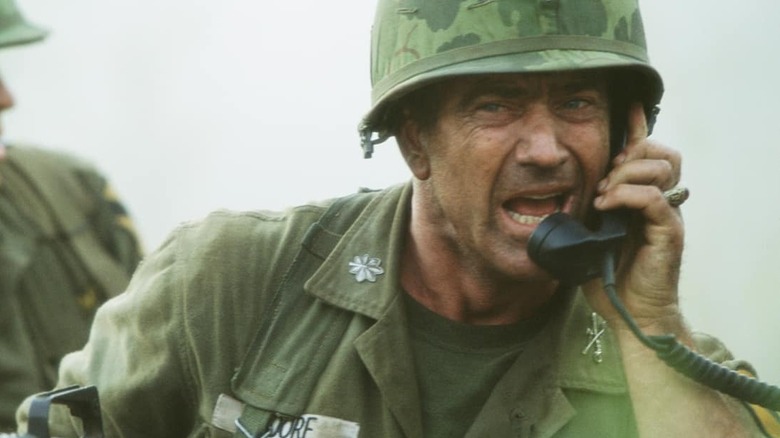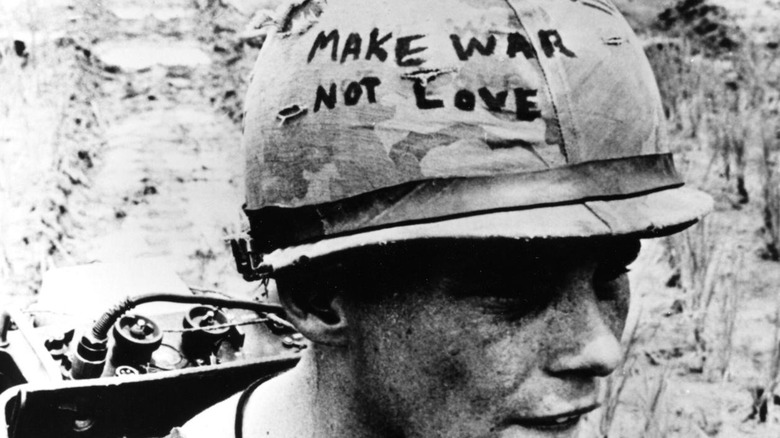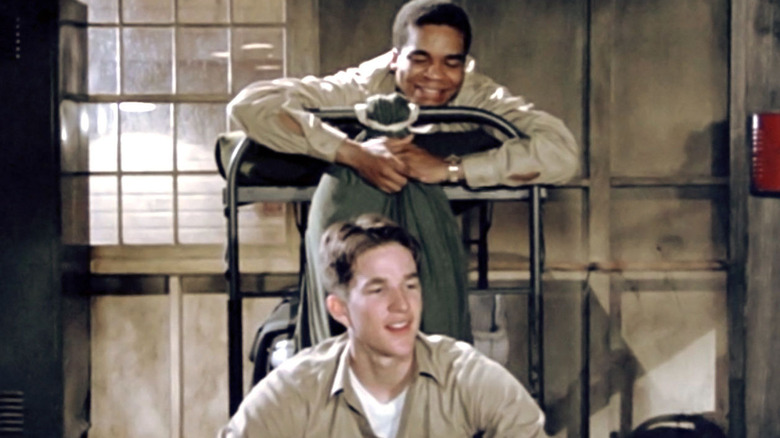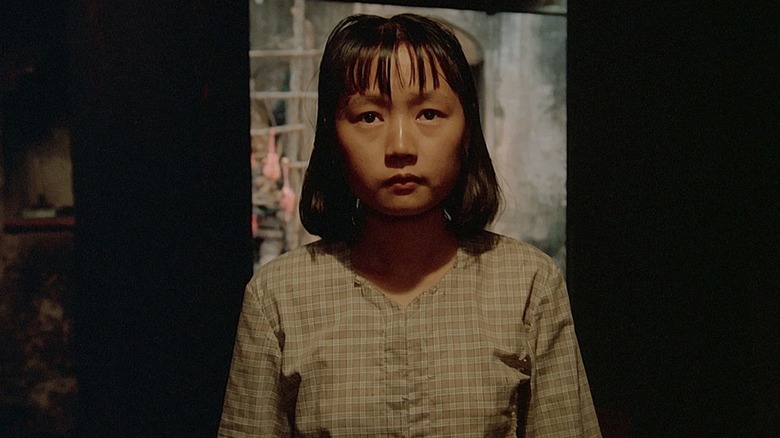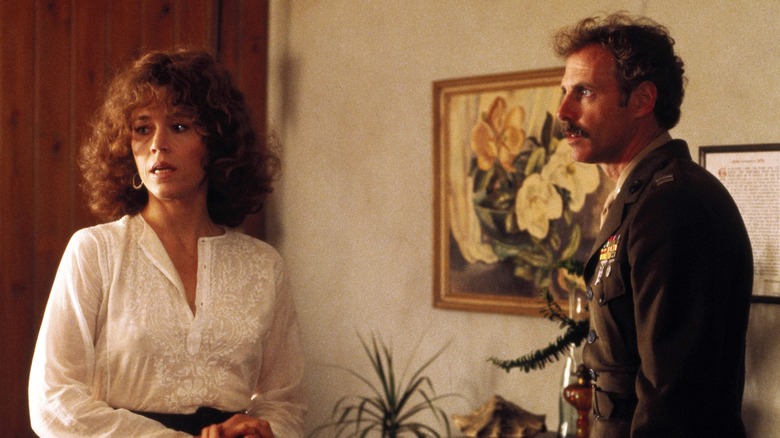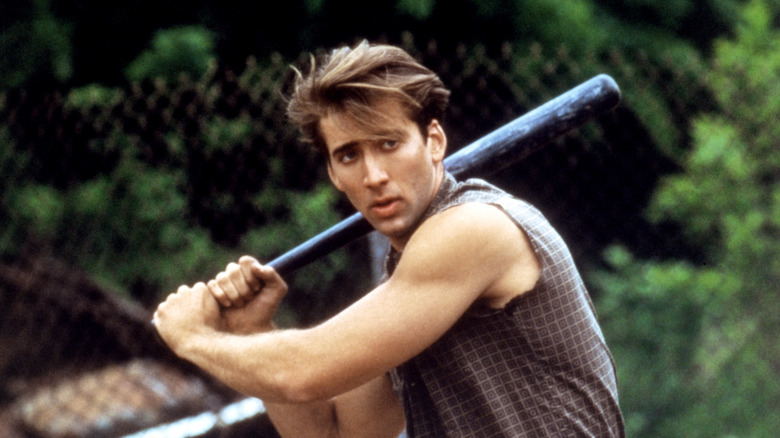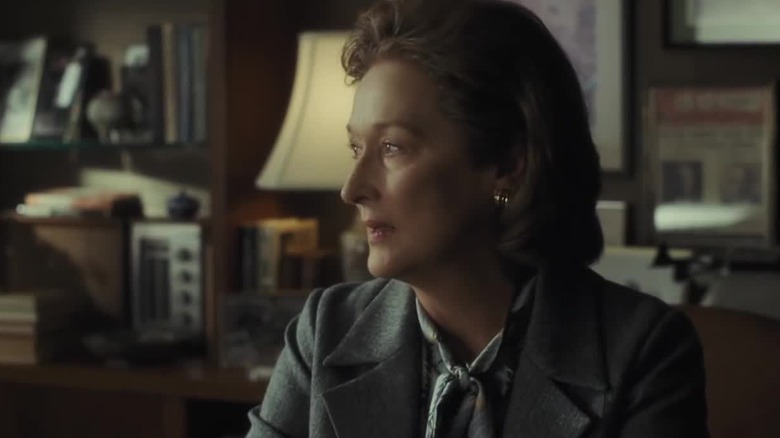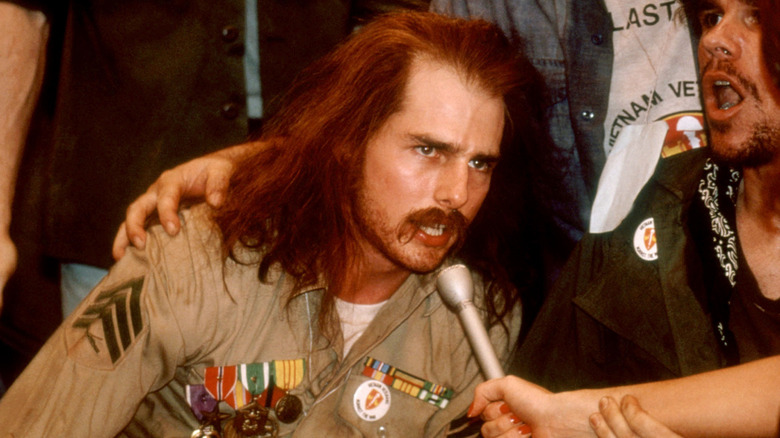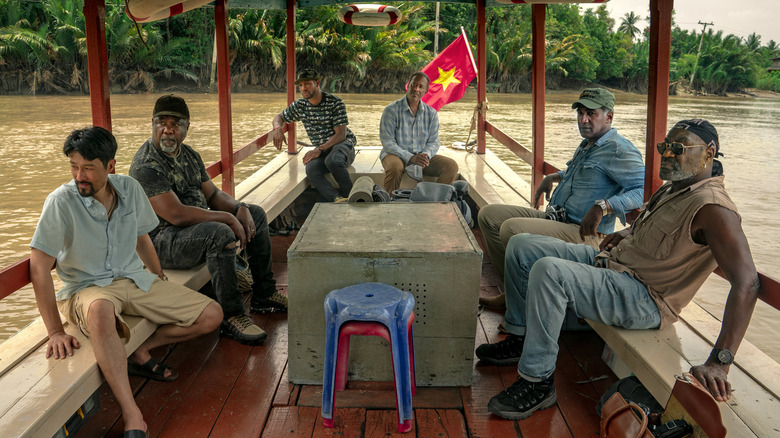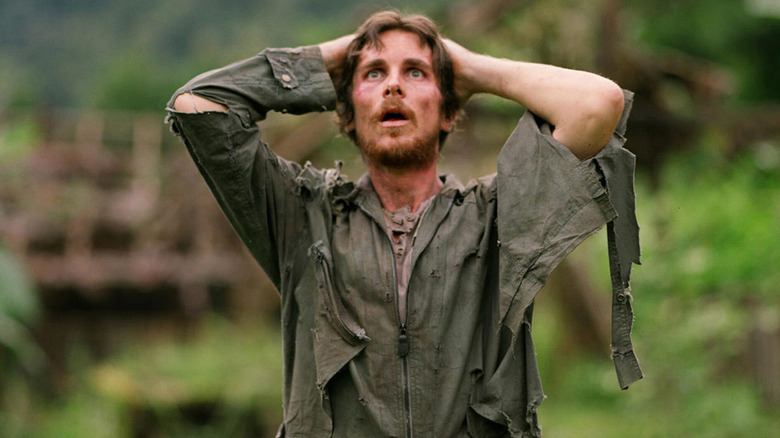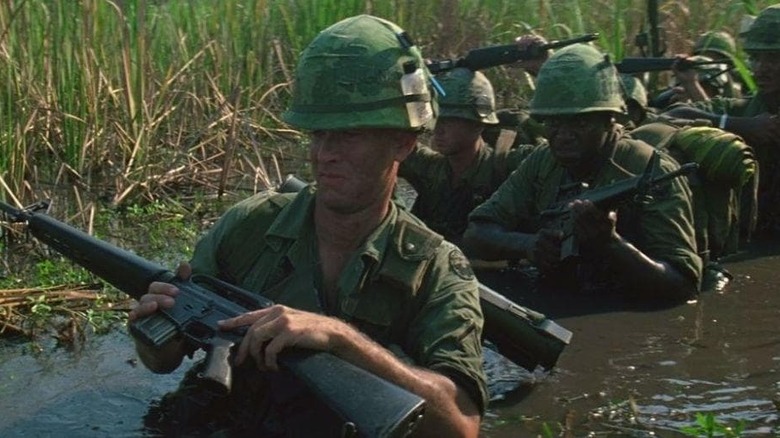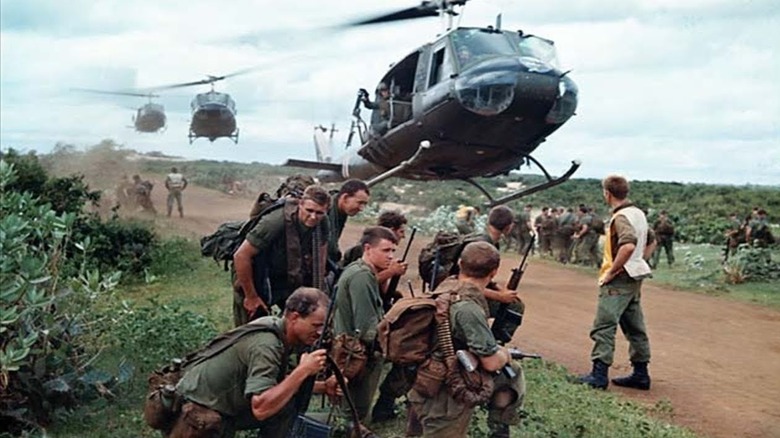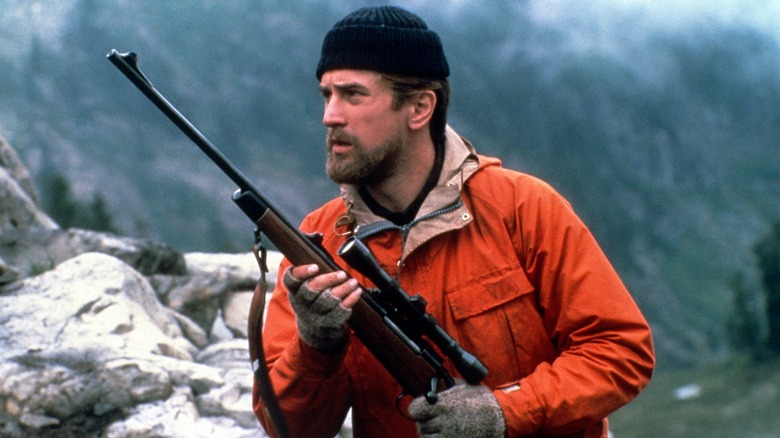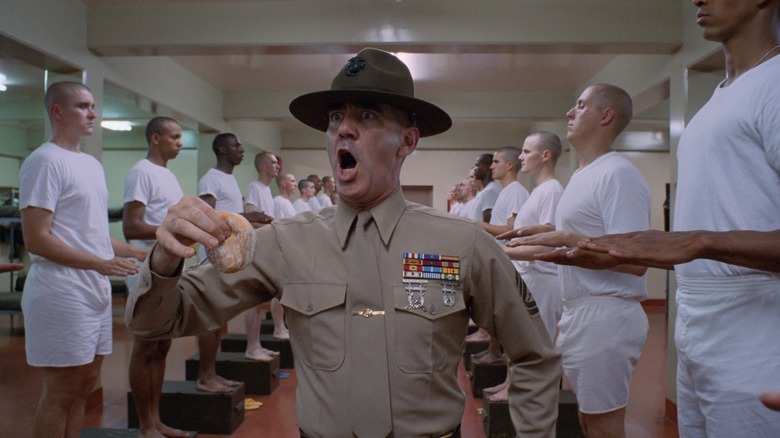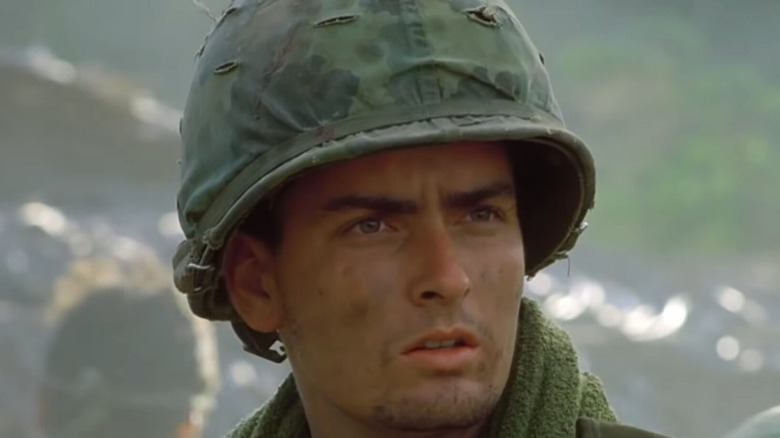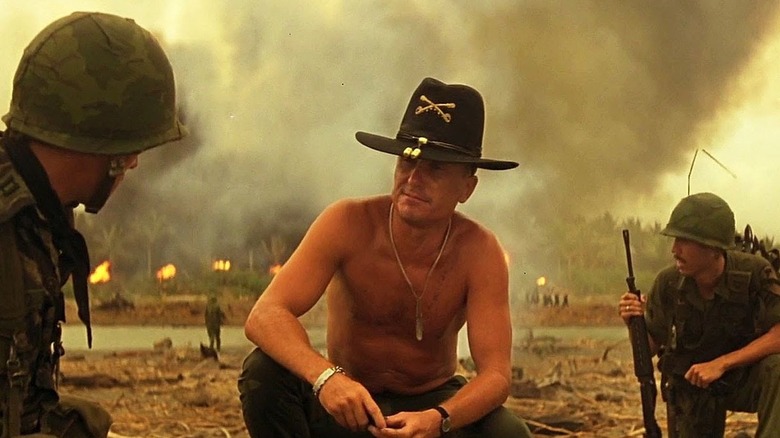50 Best Vietnam War Movies Of All Time Ranked
The Vietnam War continues to be one of the most important historical events of the 20th century. After finding itself as one of the dominant superpowers in the world, the U.S. began expanding its foreign influence over numerous countries across the globe. Assuming power over Vietnam after France's withdrawal in the '50s, the U.S. entered a hellish war against communist North Vietnamese forces from 1964 to 1975.
Those eleven years proved to be some of the most notorious in global history, culminating in numerous war crimes and atrocities committed by both sides of the war. As the situation worsened and more young men found themselves drafted, American opposition to the war at home grew increasingly more vocal, sparking protests that called for the end of hostilities immediately. Political unrest became the norm, with the fighting only growing more heated abroad, and young veterans returning home physically and emotionally scarred from their service.
As is the case with most war films, movies based on the Vietnam War tend to reflect the nature of the war itself: The fractured mental state of Americans at the time, the political upheaval, and the barbarity of the battles. These movies are often downbeat in nature, focusing on the failure of the American war effort, and the ignoble way it was fought. By exploring these ideas, many of these films have gone on to achieve notable critical acclaim, and are often considered cinematic masterpieces today.
From '70s documentaries like "Hearts and Minds" to the ambitious "Apocalypse Now," here are 50 of the greatest Vietnam War movies ever made.
50. Heaven & Earth
Le Ly (Hiep Thi Le) is a Vietnamese woman whose peaceful life is uprooted by the outbreak of war in her village. Finding herself at odds with both the South Vietnamese and North Vietnamese armies, Le Ly does her best to survive in her war-ravaged country, eventually finding companionship with a U.S. Marine (Tommy Lee Jones).
The last film in Oliver Stone's Vietnam War trilogy (which also includes "Platoon" and "Born on the Fourth of July"), "Heaven & Earth" is a harrowing adaption of Le Ly Hayslip's incredible life story. Told predominantly from Le Ly's point of view, audiences see Vietnam's conflict with France in the '50s and the U.S. in the '60s from a non-combatant's perspective, allowing for greater relatability between viewer and protagonist.
Unfortunately, it failed to gain as much positive recognition as Stone's previous Vietnam War-themed films, earning mixed reviews from critics — mainly due to its length and lack of narrative cohesion. "An epic is only as good as its smallest, simplest truth. But 'Heaven' has so many themes, ranging from Buddhist spirituality to feminism, it ends up with none," said The Washington Post's Desson Howe.
49. Good Guys Wear Black
As the war nears its end, the leader of an elite CIA assassination team (Chuck Norris) escapes from the jungles of Vietnam and heads back home. Now living in Los Angeles, he tracks down the government official (James Franciscus) who betrayed his team to the North Vietnamese military.
A movie with a far looser and more sensationalized interpretation of the Vietnam War than most others on this list, "Good Guys Wear Black" is a film that mostly sought to capitalize on the success of Hong Kong kung fu movies of its era. Today, it's perhaps most notable for introducing its star, Chuck Norris, as one of the definitive new faces in the martial arts genre, jumpstarting his popularity for the next few decades.
While it's considered one of Norris's better films — thanks largely to its cast — "Good Guys Wear Black" is today seen as a fairly mediocre movie at best. "'Good Guys Wear Black' is responsible for making Norris a movie star, although it's not a particularly distinguished picture," said Film Frenzy's Matt Brunson.
48. 1969
Ralph (Robert Downey Jr.) and Scott (Kiefer Sutherland) are best friends who vehemently oppose the Vietnam War in "1969." Facing the prospect of being drafted into service, the two plan to run away from their hometown, taking in everything the counterculture has to offer — leading Scott into direct conflict with his more traditional father (Bruce Dern).
The greatest thing that might be said about "1969" is that it boasts a phenomenal cast of young actors, including Sutherland, Downey Jr., and Sutherland's onscreen love interest, Winona Ryder. Sadly, the movie mangles its anti-war sentiment, maintaining a driftless plot full of conflicting storylines and premises that ultimately go nowhere.
In addition to it being a financial failure — grossing $5.9 on a $7 million budget (via Box Office Mojo) — it garnered mixed reviews from critics. "Affecting memories and good intentions don't always add up to good screen stories, and such is the case in '1969,' one of the murkiest reflections on the Vietnam War era yet," said Variety.
47. The War
Stephen Simmons (Kevin Costner) is a traumatized Vietnam veteran who returns home to his small suburban town after a brief stay in a mental hospital. As he contends with his PTSD and tries his best to hold down a job, Stephen finds solace in helping his children and their friends construct a treehouse, as well as resolving a conflict between his kids and neighboring bullies.
Despite its talented cast — including a star-making performance from a young Elijah Wood — "The War" is quickly bogged down by its overly sentimental look at family and friendship. If it had settled on one or two central messages, the film might have persevered as an endearing family drama or a gut-wrenching portrait of PTSD and recovery. Instead, it hands in surface-level presentations of both, resulting in the movie earning mixed to negative reviews.
"This is one of those films so overwrought and overwritten that a perfectly good human story gets swamped in Statements About the Human Condition," said Roger Ebert.
46. Uncommon Valor
In the early 1980s, a retired Marine colonel (Gene Hackman) searches for his son (Todd Allen), a soldier who went missing a decade prior in the Vietnam War. Believing him to be detained in a Laotian POW camp, the colonel puts together an elite team of Vietnam veterans to infiltrate the camp and free his son.
"Uncommon Valor" is pretty much your boilerplate ensemble action film of the 1980s, relying on every genre convention it can think of. Like many films on this list, it relies on a dramatized interpretation of the Vietnam War, likening it more to a simplistic adventure extravaganza than an abhorrent conflict.
A box office success, grossing $30.5 million (via Box Office Mojo), the movie earned mixed reviews for its cliched story and pacing, even if reviews remained complimentary towards the film's talented cast (including Hackman, Robert Stack, Patrick Swayze, and Fred Ward). "By the time we arrive at the movie's singularly unsatisfying ending, we're ready for somebody to break in and rescue us from the theater," said Roger Ebert.
45. Some Kind of Hero
Returning home from years spent as a POW, Eddie Keller (Richard Pryor) is surprised to find how greatly life has changed since his military career began. With his wife having left him and his mother dealing with a variety of health issues, Eddie searches for ways to survive in the civilian world, turning to a life of crime to make ends meet.
There's a reason why Richard Pryor continues to be an adored and respected comedian. In all of his films, he balances lovable underdog qualities with his characters that make them simultaneously cartoonish and still somehow relatable. "Some Kind of Hero" is among Pryor's more realistic characters, although the movie would've benefited greatly from a less comic performance from Pryor.
Nowadays, "Some Kind of Hero" is considered one of Pryor's lesser films, yet critics have praised the late actor for handing in an impressive enough performance in an otherwise unremarkable film. "'Some Kind of Hero' is yet another example of how Richard Pryor can take a mediocre film and elevate it to the level of his extraordinary talents," said Variety.
44. The War at Home
Jeremy Collier (Emilio Estevez) is a Vietnam War hero who returns home to live with his parents (Martin Sheen and Kathy Bates) in a peaceful suburban community. Having difficulty adjusting to civilian life, Jeremy finds himself increasingly at odds with his combative parents, who think Jeremy is weak for being unable to let go of his past wartime experience.
An engrossing look at PTSD and the mental strain veterans suffered after returning from war, "The War at Home" shares plenty of narrative similarities to many other Vietnam War films. Unlike many of those same films, though, it offers a more engaging glimpse at the mindset of so many men like Estevez's Jeremy, fully exploring the nuances of its subject matter.
While elements of the script were criticized for being too melodramatic, the movie still earned mixed to positive reviews, mostly due to the memorable performances of its main cast. "The film is so beautifully acted that you barely notice the staginess of some of the speeches," said the New York Times' Stephen Holden.
43. Big Wednesday
Matt (Jan-Michael Vincent), Jack (William Katt), and Leroy (Gary Busey) are avid surfers who spend their days in idyllic bliss in 1960s California. As the 1960s pass by, the three friends realize that the world is changing around them, their peaceful existence threatened by the imminent possibility of being drafted to serve in Vietnam.
"Big Wednesday" is just as much a look at the shifting landscape of 1960s America as it is a portrait of the Vietnam War. In it, the three young men symbolize all the youthful hopes and ambitions of Americans at the time. They gradually turn from young optimists into more pragmatic realists, wisened by all the pain and heartbreak that came with the late '60s.
Released to initially negative reviews in 1978, critical opinion of the movie has warmed over the years, with the film now considered a cult classic of its genre. "Looking back at the strong, young cast, the evocative sense of time and place, and the thrilling ocean imagery, 'Big Wednesday' certainly deserves a spot among the pantheon of classic surfing films," said film critic Christy Lemire.
42. Dead Presidents
Anthony Curtis (Larenz Tate) is a young soldier who forfeited his chance at an ideal middle-class life by enlisting in the armed services. Returning home from Vietnam, he finds it difficult to readjust to civilian life. With no other way to support himself or his family, he embarks on a path of crime, robbing an armored bank truck with his former squad mates.
In certain ways, "Dead Presidents" feels like a more serious version of "Some Kind of Hero," doubling down on the darker undertones of Vietnam vets returning home to find out that their loved ones have moved on without them. Based in part on an actual Vietnam veteran named Haywood Kirkland, the story's basis in reality makes it all the more heartbreaking to watch.
Still, the film's diverse range of subjects hamper the effectiveness of the finished film, leaving "Dead Presidents" feeling like it's taking on too many themes for its own good. "It's an overly ambitious effort that strains to work as a coming-of-age drama, a 1960s period piece and a searing comment on the way African American GIs went largely unappreciated for their war efforts," said the San Francisco Chronicle's Peter Stack.
41. R-Point
In 1972, the South Korean military receives a cryptic radio message from a missing squad that they had believed was killed in combat. To rescue the missing squad, the military sends a group of eight soldiers into the wilderness to find them, with the men soon coming face to face with horrors beyond their imagination.
It's rare to see a period war film fused with a horror movie, but "R-Point" is just that, mixing scares with some genuinely compelling depictions of the Vietnam War from the eyes of Korean soldiers (a woefully under-represented perspective in the genre). Elements of the movie are intriguing and certainly outside the box, but it does little to accurately explore the true horrors of the Vietnam War in its entirety as well as some other movies on this list.
Reception for the movie has varied between mostly mixed and occasionally positive. "While it's refreshing to see a war film veer into the supernatural so quietly, R-Point lacks the much-needed dramatic tension to get us through its slow-moving 110 minutes," said Slant Magazine's Jeremiah Kipp.
40. Eastern Condors
Lieutenant Colonel Lam (Lam Ching-ying) is a Hong Kong military officer tasked with overseeing a special operations unit. His mission: Train a group of 12 convicts to complete a suicide mission to destroy a hidden weapons cache left behind by the U.S. military. The objective requires them to covertly enter Vietnam and destroy the arsenal before the Viet Cong discovers its existence.
"Eastern Condors" is essentially the Hong Kong action equivalent of "The Dirty Dozen," featuring a similar storyline, characters, and climactic final battle. While its roots in the then-popular Hong Kong action subgenre may be its biggest attraction, other viewers might have a tough time finding enjoyment in its plethora of war conventions — an opinion shared by most critics.
"'Eastern Condors' is an absurdly entertaining head rush of ultra-violent martial mayhem, campy humor, manly melodrama, and phenomenal stuntwork guaranteed to have Hong Kong action fanatics leaping out of their seats with excitement, but will, most likely, leave cynics rolling their eyes in disbelief," said the Austin Chronicle's Joey O'Bryan.
39. A Soldier's Sweetheart
Tired of his monotonous life in Vietnam, a young soldier named Mark (Skeet Ulrich) smuggles his girlfriend Marianne (Georgina Cates) into his military camp. At first, Marianne appears taken by the country and its natural wonder, but the more time she spends with the troops, the more she begins to want to experience combat alongside her boyfriend and his squadmates.
Based on a Tim O'Brien short story from his critically acclaimed "The Things They Carried," "A Soldier's Sweetheart" is an engaging look at how the Vietnam War changed people's personalities and outlooks under the constant stress of combat. Critics positively noted the movie's ability to portray the Vietnam War from a woman's perspective, while still maintaining the dehumanizing effect the war had on those who experienced the conflict firsthand.
"Just when you think all the basic Vietnam stories have been told, helmer Thomas Michael Donnelly puts a new spin on America's lost cause by viewing it from a female angle... 'A Soldier's Sweetheart' taps into an aspect of warfare that transcends gender," said Variety's Ken Eisner.
38. Good Morning, Vietnam
Adrian Cronauer (Robin Williams) is an American radio DJ who arrives in Vietnam to take over as the voice for Armed Forces Radio Service. While his comedic sensibility proves incredibly popular among the troops, Cronauer routinely butts heads with his immediate superiors, who dislike his unorthodox sense of humor.
"Good Morning, Vietnam" strikes a great balance between laughs and a genuinely hard-hitting depiction of the Vietnam War. Like some of the most poignant comedies, the film probes deeply into the idea of comedy as a form of escape — a crutch we can all rely on when reality becomes too grim and unbearable to stomach. In the lead role, Williams injects a soft-sided humanity into his character, portraying him as the modern equivalent of Hawkeye Pierce from "MASH." He's a character clearly out of his element in the chaos of war, but who copes with his surroundings by making incessant jokes to lighten the mood.
It's Williams' performance that most accounts for the film's success. In addition to the praise he garnered for the role, he received an Academy Award and BAFTA nomination for best actor, winning the Golden Globe in that same category. "Make no mistake about it: Mr. Williams's performance, though it's full of uproarious comedy, is the work of an accomplished actor. 'Good Morning, Vietnam' is one man's tour de force," said the New York Times' Vincent Canby.
37. Go Tell the Spartans
Set around one year before the start of the Vietnam War, "Go Tell the Spartans" features the grizzled Major Barker (Burt Lancaster) and a group of American officers as they are assigned to aid a small cadre of South Vietnamese villagers looking to protect their land from North Vietnamese forces.
"Go Tell the Spartans" operates on an interesting enough premise, focusing its story more on Americans' presence in the country before the official start of the Vietnam War. Released in the late '70s, it was seen as one of the earliest and most frequently overlooked anti-war films to depict the Vietnam War. Showing the grim reality of the conflict in its infancy, it illustrates the foreboding sense of failure inherently tied to America's involvement from the very earliest stages. Still, the movie's reliance on war film stereotypes led to it earning mixed to positive reviews from critics.
"'Go Tell the Spartans' contains a lot of statements that are meant to be prophetic in hindsight. It also considers the war in terms of countless earlier movies about earlier wars," said Roger Ebert.
36. Hamburger Hill
Taking its name from the infamous battle, "Hamburger Hill" follows the members of a U.S. Army company who are assigned to take Hill 937 — a heavily-fortified outpost on the Dong Ap Bia mountain. With their superiors ordering attack after attack on the outpost, the American soldiers endure a week of some of the fiercest fighting in the entire Vietnam War.
Because of the military's bungled handling of Hill 937 (ordering several head-on assaults on the hill and then abandoning it shortly after the battle's conclusion), Hamburger Hill is a name that will forever live in infamy in the annals of U.S. history. Rather than focusing on the bureaucratic mismanagement of the hill, "Hamburger Hill" instead focuses on the individual perspectives of soldiers who partook in the battle, allowing for a more enthralling look at the fighting from their point of view.
The resulting film was praised for its grounded narrative and more realistic depiction of the War, as well as the nightmarish battle, fought between the U.S. and South Vietnamese forces and their North Vietnamese adversaries. "'Hamburger Hill' [is] a well-made Vietnam War film that narrows its attention to the men of a single platoon in a specific operation," said the New York Times' Vincent Canby.
35. The Boys in Company C
In 1967, five young men survive the grueling training regimen that it takes to become a Marine. Once they've successfully passed through basic training, though, they find the reality of military life in Vietnam even worse than they previously imagined.
Released years before "Apocalypse Now," "Platoon," and "The Deer Hunter," "The Boys in Company C" was considered the proto-anti-Vietnam War film of its day. Portraying the open cynicism expressed by so many soldiers who served in combat, it shows the growing disillusionment of soldiers who experienced the war as the conflict waged on. The audience witnesses a crop of young men with their own fixed ideas about combat, all of whom are confronted by the grim reality that war isn't as fun or romantic as they previously believed it to be.
For its frank and realistic portrayal of the war, "The Boys in Company C" opened to largely positive reviews in 1978. "The movie is, first and best, a thrilling entertainment that starts by being funny and ends by being very deeply moving. But I also think it reflects an attitude about Vietnam that wouldn't have been possible in a war movie of the early 1940s," said Roger Ebert. Interestingly, it's also known for being the film debut for Lee Ermey, appearing in a role as a loud-mouthed drill instructor (which he later played with greater prominence nine years later in "Full Metal Jacket").
34. Music Within
Richard Pimentel (Ron Livingston) is a Vietnam War vet who lost most of his hearing from a close-proximity explosion. Returning home, Pimentel is disgusted to see his fellow Americans' indifference to wounded soldiers, committing his life to nonprofit work helping veterans get jobs, and advocating for the historic Americans with Disabilities Act of 1990.
An underrated biographical film, "Music Within" traces Pimentel's incredible life story from his troubled upbringing to his later career as a humanitarian worker. The movie's depiction of Pimentel perfectly captures the nuances of his personality — juxtaposing the trauma he's experienced throughout his life with his more charming outward presence.
Livingston's performance as Pimentel was positively received by critics (even as the film was largely panned), many of whom noted Livingston's everyman quality that he relies on to build an empathetic and relatable performance. "'Music Within' will hook the audience up with a supremely cool and witty real-life character ... what should be a tough, sentimental slog whisks by in a breezy, entertaining 94 minutes like a kind of illustrated stand-up comedy routine," said The Hollywood Reporter's Kirk Honeycutt.
33. Bullet in the Head
Three childhood friends turned low-level criminals flee from their home in Hong Kong after killing a rival gang member. Journeying to Vietnam, the three establish a black market ring in Saigon during the war, leading them into conflict with the Viet Cong.
From celebrated Hong Kong action director John Woo, "Bullet in the Head" may not be as well-known as some of the filmmaker's other works, but it's still an effective film that cleverly fuses several genres together. At once a war movie, a crime film, and a drama, it's a fascinating look at friendship in the hardest times, and the companionship we feel shouldering our burdens with other like-minded individuals who've shared our past hardships.
In more recent years, "Bullet in the Head" has gone on to gain a cult following, earning a place on Time Out's list of the 101 Best Action Movies. "Woo gives us 'Days of Being Wild,' 'The Deer Hunter' and 'The Treasure of the Sierra Madre' all in one movie — a deliriously sincere, operatic magnum opus with a fierce passion unlike anything else in his filmography (or anyone else's)," said Time Out's Trevor Johnston.
32. Dogfight
The night before he and his friends ship out overseas, Eddie Birdlace (River Phoenix) and his fellow Marines challenge each other to a mean-spirited game: The one who brings the most unattractive girl to their party wins a prize at the end of the night. When Eddie finds the pacifist waitress Rose (Lili Taylor), he invites her to tag along, gradually forming a romantic attachment to her along the way.
"Dogfight" is a showcase for the talents of River Phoenix, filmed just two short years before his untimely death. Throughout his filmography, the actor constructed fully-formed personas for every one of his characters, each radically unique from his previous role. In "Dogfight," Phoenix embodies a young man uncertain of his own emotions, receiving guidance and a lesson in humanity from his onscreen romantic interest.
Phoenix and Taylor's performances in the film were both enthusiastically received, the movie earning generally positive reviews on the strength of the actors' chemistry together. "'Dogfight' isn't a love story so much as a story about how a young woman helps a confused teenage boy to discover his own better nature. The fact that his discoveries take place on the night before he ships out to fight the war in Vietnam only makes the story more poignant," said Roger Ebert.
31. The Quiet American
Set near the end of the First Indochina War in 1952, an American aid worker (Brendan Fraser) enters a complex love triangle involving an older British journalist (Michael Caine) and a Vietnamese woman (Do Thi Hai Yen). As the trio's romantic entanglement with one another becomes more intricate, the film explores America's growing involvement in Vietnam, setting the groundwork for the Vietnam War a decade later.
Based on Graham Greene's best-selling novel of the same name, "The Quiet American" is a riveting adaptation, remaining incredibly faithful to its source material, yet updating it just enough for a modern translation. The book — written in 1955, a decade before the Vietnam War — evaluates more of France's impact on Vietnam in the early '50s and the early engagement of U.S. forces in the country.
Ingeniously, this 2002 film includes far heavier foreshadowing of America's eventual influence on Vietnam, operating almost as an eerily prophetic story that foreshadows the shape of things to come. Between its meditative exploration of French and American interests in Vietnam and its incredible acting, "The Quiet American" earned mostly positive reviews, with Caine receiving BAFTA and Golden Globe nominations for best actor. "'The Quiet American' is a lovely little mover, barely breaking into a sweat as it dances its dreadful dance of love and need to the backing tune of political unrest, moral ambiguity and subterfuge," said The Times' Barbara Allen.
30. 84C MoPic
MoPic (Byron Thames) is a military cameraman documenting an American reconnaissance patrol as they traverse the jungle. Encountering enemy booby traps and opposing patrols around every corner, MoPic chronicles each step of the squad as they journey deeper into enemy-controlled territory.
Released in the late 1980s, "84C MoPic" is a drastically forward-thinking film that makes clever use of the found footage style of filmmaking years before its popularization in the '90s and 2000s with "The Blair Witch Project" and "Paranormal Activity." By utilizing found footage, the filmmakers allow audiences to directly experience the terrors that await an Army patrol trudging through the Vietnamese jungles.
It's a tense and nightmarish film that allows viewers to witness the Vietnam War as though they were actually there, which accounts for its positive reception upon its release in 1989. "'84 Charlie MoPic' deserves a place by itself among the films about Vietnam. It is a brave and original attempt to record nothing more or less than the actual daily experience of a unit on patrol, drawn out of the memories of men who were there," said Roger Ebert. Along with the warm reviews it received, "84C MoPic" was also nominated for the grand jury prize at the Sundance Film Festival, as well as the Independent Spirit Award for best first feature.
29. The Fog of War
Comprised of archival footage and modern interviews with Robert McNamara, "The Fog of War" sees the former Secretary of Defense looking back at his career — most especially his days working under the Kennedy Administration and, later, the Johnson Administration in the 1960s.
There are quite a few illuminating documentaries that discuss the Vietnam War at some length. "The Fog of War" is an example of one such film, although the movie is more centered around McNamara's life from his academic career until his appointment to the Department of Defense. Still, throughout the film, McNamara discusses with pointed openness his role in the Vietnam War, reflecting back on the influence he had in escalating the conflict into the military debacle it's seen as today.
"The Fog of War" was one of the most well-received films of 2003, winning the Academy Award for best documentary feature. In 2019, it was selected for preservation by the Library of Congress for being "culturally, historically, or aesthetically significant." BBC.com's Nev Pierce wrote of the film, "the reflections of the former U.S. Secretary of Defense provide a window into the moral reasoning of a brilliantly-minded manager who became a self-declared 'war criminal.'"
28. Jacob's Ladder
Jacob Singer (Tim Robbins) is a postal worker struggling to separate reality from his vivid hallucinations — many of which involve his first wife, his now-deceased son, and his military service in Vietnam. As Jacob's visions worsen, his girlfriend Jezzie (Elizabeth Peña) does everything she can to help Jacob maintain his sanity.
A psychological horror film with a significant cult following, "Jacob's Ladder" lacks the same narrative cohesion shared by other films on this list. Instead, it more fully embraces its status as a horror film, doubling down on its unnerving subject matter to elicit a stomach-churning response from its audience. And yet, the movie still works as an unconventional Vietnam War film, showing how alienating and difficult PTSD can be, whether it's the result of combat service or some other traumatic experience.
The film's reputation has grown in the years since its release in 1990, having influenced several well-known video game franchises like "Resident Evil" and the "Silent Hill" series. "Despite an ending that is intended as victorious, the movie is a thoroughly painful and depressing experience — but, it must be said, one that has been powerfully written, directed and acted," said Roger Ebert.
27. Casualties of War
Tony Meserve (Sean Penn) is the cruel, sadistic sergeant of an Army squad that kidnaps a young girl (Thuy Thu Le) from a local village. Together with his men, the three men assault and then brutally murder the girl — save for a young soldier (Michael J. Fox), who vows to bring his squadmates to justice.
More of a thriller than a traditional war movie, "Casualties of War" is a look at the dehumanizing effect war can have on a person's psyche, as well as how certain individuals can use the pretense of combat for their own sick advantage. Based on a historical incident involving the kidnapping, assault, and murder of a Vietnamese girl by American soldiers, the movie's basis in reality makes it all the more poignant and difficult to watch.
Named by Quentin Tarantino as "the greatest film about the Vietnam War," it's a distressing film about the atrocities that can be committed on and off the battlefield. The movie earned praise when it was released to theaters in 1989, with the Washington Post's Hal Hinson writing, "It is a film of great emotional power and great seriousness in which all of the filmmaker's talents and interests are in balance. It is a breakthrough work, a signal of an artist's blossoming maturity, and one of the most punishing, morally complex movies about men at war ever made."
26. First Blood
John Rambo (Sylvester Stallone) is a veteran who served in an elite Green Beret unit in the Vietnam War. Returning home, Rambo crosses paths with the sheriff (Brian Dennehy) of a small Washington state town, who arrests him for vagrancy, setting off a chain of events that push Rambo into going on the run.
One of the most famous films to feature Sylvester Stallone, "First Blood" was the movie that solidified Stallone's place as one of the definitive action stars of the 1980s after his career-making performance in "Rocky." While it does heavily veer into the more generic action stereotypes of its era, Stallone hands in a performance that's largely believable, portraying the subdued, withdrawn nature of a veteran who's seen far too much combat in his lifetime.
A major box office success in 1982, grossing $125.2 million against a $15 million budget (via The Numbers), "First Blood" was initially met with mixed to negative reviews from critics. In more recent decades, critical appraisal of the film has positively shifted, with most viewing it as a beloved classic of the '80s action genre. "'First Blood' is a very good movie, well-paced, and well-acted not only by Stallone (who invests an unlikely character with great authority) but also by [Richard] Crenna and Brian Dennehy," said Roger Ebert.
25. The Killing Fields
In 1973, New York Times reporter Sydney Schanberg (Sam Waterston) enters Cambodia to cover the civil war waging through the country. While there, the Khmer Rouge launches its genocidal Year Zero policy, with Schanberg and his team finding themselves unable to leave as the faction begins systematically murdering its own people.
Technically, "The Killing Fields" is more expressly centered around the earliest stages of the Cambodian genocide than it is about the Vietnam War. However, due to the political instability the nation suffered as a result of the Vietnam War, the Khmer Rouge can be considered to have come to power as a direct consequence of the war, ushering in Pol Pot's reign of terror in the years that followed. It's for this very reason that "The Killing Fields" remains a fascinating Vietnam War-adjacent film, evaluating the immediate effects the war had not just on America and Vietnam, but on neighboring countries who suffered in the long run, too.
For its unwavering depiction of the atrocities committed by the Khmer Rouge, "The Killing Fields" won almost universal praise when it was released in 1984. It received a total of seven Academy Award nominations (including Best Picture), winning for best supporting Actor, best cinematography, and best editing. "This is one of the quietest 'war' movies ever made; yet, it's an indelible portrait of the excitement, horror, and confusion with which journalists experience war," said Vogue's Molly Haskell.
24. Bat*21
Lieutenant Colonel Gene Hambleton (Gene Hackman) is a skilled U.S. pilot shot down while on a mission deep into the heart of enemy territory. With the North Vietnamese launching a far-ranging search for the downed Air Force colonel, Hambleton tries to navigate to safety, contacting a nearby pilot (Danny Glover) for aid.
"Bat*21" is one of those war films very loosely based on reality, dramatizing numerous historical incidents for the sake of a good, old-fashioned Hollywood action picture. Yet for all its inaccuracies, it still crafts a harrowing narrative about a man behind enemy lines, desperately trying to avoid detection and make it out before he is discovered.
At the time of its release in 1988, the movie earned positive reviews, with most critics seeing it as a fairly straightforward illustration of the Vietnam War rather than the weighty, more complex war films that came earlier in the decade. "'Bat*21' is the kind of lean, no-nonsense war film Hollywood used to make back before the subject became burdened with metaphysical insights," said Roger Ebert.
23. The Last Full Measure
In 1966, Air Force Pararescueman William Pitsenbarger (Jeremy Irvine) is killed in combat while trying to save soldiers in the heat of a bloody battle. Over three decades later, an ambitious Pentagon staffer (Sebastian Stan) investigates why Pitsenbarger was never granted the Medal of Honor citation that his loved ones believed he rightfully deserved.
One of the more recent films to center on the Vietnam War in modern memory, "The Last Full Measure" is both a heartbreaking and enlightening depiction of the war. The film offers a touching illustration of Pitsenbarger's real-life acts of valor, such as his courageous efforts to save over 60 American men in dangerous combat missions. It also does a great job exploring the bureaucratic red tape that barred so many enlisted Air Force members from receiving the Medal of Honor that they (like Pitsenbarger) had clearly earned.
As moving as "The Last Full Measure" can be in some areas, the movie was not universally loved by critics — some praised its historical basis, while others believed it to be too conventional for its own good. "Here's a true story about a young soldier's exceptional bravery and sacrifice made into a pretty average war movie, insubstantial and TV-ish despite the appearance of some decorated Hollywood veterans," said The Guardian's Cath Clarke.
22. Tigerland
Roland Bozz (Colin Farrell) is forcefully drafted into military service, despite his fierce opposition to authority and the Vietnam War in general. As he spends his days in a boot camp made to replicate the environment of Vietnam, he plots ways to escape his training, all the while dealing with a sociopathic squadmate (Shea Whigham) who's out to kill him.
Like "Casualties of War," "Tigerland" can be viewed more as a tense, almost Hitchcockian thriller than your average war film. In it, Farrell and Whigham maintain fantastic onscreen chemistry, as they transition from reluctant squad members to full-on rivals. Along with its main premise, the movie accurately depicts the foreboding feeling experienced by most soldiers as they near the completion of basic training, preparing to ship out to Vietnam whether they're ready to or not.
Premiering at the 2000 Toronto Film Festival, "Tigerland" was met with overall positive reviews, with many naming it one of director Joel Schumacher's strongest movies. "Even when the script overtaxes the allegory about how Vietnam divided a nation at home, Schumacher and the actors prevail by fixing their sights on what happens to men on that last stop before the game of war becomes a grim reality," said Rolling Stone's Peter Travers.
21. Across the Universe
Jude (Jim Sturgess) is a teenage native of Liverpool who travels to the U.S. to find his biological father in "Across the Universe." When he arrives, he takes in everything the counterculture has to offer, becoming embroiled in student-led anti-Vietnam War protests.
Inspired by numerous classic Beatles songs, "Across the Universe" is bound to be the ideal viewing option for fans of the Fab Four. Taking inspiration from dozens of Lennon-McCartney-penned songs, it's filled to the brim with dazzling covers of everything from "Hey Jude" to "Lucy in the Sky with Diamonds." Aside from the clever uses of the songs, though, the movie offers an intimate and moving portrait of the younger generation during the 1960s, full of anger, fear, and resentment of the U.S. government.
While the plot can be somewhat meandering or difficult to follow for some, critics praised the movie's immersive visuals, the cast, and the musical sections of the film. "'Across the Universe' is an audacious marriage of cutting-edge visual techniques, heart-warming performances, 1960s history, and the Beatles songbook," said Roger Ebert. It received an Academy Award nomination for best costume design.
20. Little Dieter Needs to Fly
In 1966, German-American pilot Dieter Dengler was shot down over Laos. Over the next few months, Dengler was tortured and forcefully starved by North Vietnamese forces, escaping from his captors and trekking across miles of treacherous wilderness. Three decades later, influential filmmaker Werner Herzog documents Dengler as he recreates his past wartime experiences, providing in-depth commentary on what he went through at the time.
Werner Herzog is a master of the documentary format at this point. Time and time again, he's managed to eschew the traditional method for documentary filmmaking, opting for a more unorthodox approach that conveys his subject matter in a new and unique way. As an example of this, "Little Dieter Needs to Fly" operates in its own idiosyncratic way, with audience members watching as Dengler confronts his past and sheds light on the horrifying experiences he endured during the war.
Herzog's exploration of Dengler's story may have been more fully explored in his 2006 film, "Rescue Dawn," but his 1997 documentary remains a feat in and of itself. "Though pic is modest in scale and humble in technical values, Dengler's personality is so charismatic and his story so compelling that they easily overcome the film's problem," said Variety's Emanuel Levy.
19. Danger Close
Stationed at the rubber plantation of Long Tan, Major Harry Smith (Travis Fimmel) commands a fractured company of 108 inexperienced Australian and New Zealand soldiers against an onslaught of NVA and Viet Cong forces. As the Vietnamese army begins to surround them, Smith and his men battle for their lives, buying time until help arrives to save them.
In the years that followed the Vietnam War, most of the films depicting the action were centered around American characters. As a result, many other nations' involvement in the war effort tends to go overlooked, such as the Australian and New Zealand armed forces — both of whom played a significant role in aiding the U.S. and South Vietnamese. By focusing on the perspectives of Australian and New Zealand troops in the early phases of the war, "Danger Close" paints a remarkably different narrative about Vietnam, detailing one of the most horrific and terrifying battles of the entire conflict.
It's for this very reason that "Danger Close" is worth watching, even if its sensationalized approach to the film's premise tends to differ from historical reality. "By turns viscerally exciting and predictably formulaic — and, quite often, both at once — 'Danger Close' is an efficiently crafted and consistently involving old-school war movie propelled by matter-of-fact professionalism on both sides of the cameras," said Variety's Joe Leydon.
18. The Sapphires
The Sapphires are an all-female band of Indigenous Australians on the verge of their first big break in 1968. When their manager (Chris O'Dowd) books them to entertain troops in Vietnam, the band experiences the hardships that come with the war, as well as the inherent racism espoused by white Americans and Australians at the time.
Loosely based on the story of a real-life female band active in the late 1960s, "The Sapphires" offers a unique outsider perspective on the Vietnam War. Mixing sharp comedy, plenty of lighthearted moments, and more than a few downbeat scenes showing racism and war at its absolute worst, it's a fascinating look at friendship in the midst of the most harrowing experiences.
Reviews for the film tended to be generally positive, with many critics noting the movie's lighter tone and comedic elements not typically seen in most Vietnam War films. "This feelgood flick will almost certainly be an international hit and it is undeniably uplifting, the joyousness of soul music smoothing out the odd shifts in tone that arise as a result of the strange genre conflict," said The Independent's Francesca Steele.
17. Last Days in Vietnam
As the Vietnam War comes to an end, the North Vietnamese Army closes in on capturing Saigon. Ordered to withdraw from the city, the remaining U.S. forces must choose between following their orders or helping as many South Vietnamese citizens flee Saigon as they can before the N.V.A. arrives.
As chaotic as the Vietnam War was, perhaps the most anarchic time in the entire war was the moment the U.S. decided to pull its troops out of the country. Having left millions of South Vietnamese soldiers and civilians to fend for themselves, what followed was a free-for-fall that saw over 7000 people escape the city within the span of a single day.
"Last Days in Vietnam" focuses on this day and the period leading up to it, made up of archival footage alongside new interviews with American politicians, military officials, and diplomats who oversaw the evacuation. Favorably received upon its release in 2014, it competed at the Academy Awards for best documentary feature. "While the documentary hardly breaks any new creative ground, its powerful content speaks for itself by revealing a harrowing episode of the Vietnam War — already a troubling chapter of American history," said IndieWire's Mary Sollosi.
16. We Were Soldiers
In 1965, Lieutenant Colonel Hal Moore (Mel Gibson) prepares a battalion of troops to enter Vietnam. Framed around the first major battle of the war, "We Were Soldiers" follows soldiers on each side of this historical engagement, as well as the wives of U.S. servicemen anxiously awaiting to hear word about whether their husbands survived the battle.
Detailing the first time the North Vietnamese and American armies met in open combat, "We Were Soldiers" tenderly explores the points of view of the two opposing armies. Juxtaposing the brutality on the battlefield with the scenes showing the soldiers' families at home, "We Were Soldiers" explores how the war changed everyone involved: soldiers, wives, daughters, sons, and parents.
Aspects of the film did face criticism shortly after its 2002 release, with some critics believing the movie suffered from a weak first act and less than stellar writing. However, its realistic battle sequences and grounded narrative were both lauded. "Probably the best thing you can say about 'We Were Soldiers' is that it does justice to an awful conflict," said the Chicago Tribune's Michael Wilmington.
15. In the Year of the Pig
Released during the height of the Vietnam War, "In the Year of the Pig" offers a fierce condemnation of the conflict. Filmmaker Emile de Antonio chronicles the background of the war from its very beginning, tracing French colonialism in the 1950s to America's growing influence on Vietnam in the early '60s.
Complete with interviews from notable historians, journalists, and anti-war activists, "In the Year of the Pig" was as celebrated as it was controversial in 1968. Critics of the film lambasted it for its anti-war sentiment, with some theaters facing threats of vandalism and bombings for showing it. Despite this, it was immediately hailed as an open and admonishing look at the conflict as it was unfolding, with de Antonio holding nothing back when it came to his analysis of the war.
Nominated at the Academy Awards for best documentary feature, the influential film critic Jonathan Rosenbaum once referred to "In the Year of the Pig" as "the first and best of the major documentaries about Vietnam." The New Yorker's Pauline Kael wrote, "Taking this footage from all over, [de Antonio] has made a strong film that does what American television has failed to do. It provides a historical background and puts the events of the last few years into an intelligible framework."
14. Streamers
As they prepare to be sent into Vietnam, a squad of young U.S. Army servicemen confront their personal prejudices towards their fellow soldiers' differing races and sexual orientations.
Directed by the iconic filmmaker Robert Altman, "Streamers" is among the director's lesser-known films. Regardless, Altman manages to portray the humanistic qualities of his characters, creating a film with clear shades of his earlier works (especially his award-winning 1970 film, "M*A*S*H"). Working with his younger cast of then mostly unknown actors, he constructs a fascinating and taut narrative that looks at the underlying barriers between soldiers, in spite of their needing to rely on each other in combat situations.
It may not be as recognized as Altman's other films, but "Streamers" still faired relatively well among critics when it arrived in theaters in 1983. "What elevates the film above a dated topical discussion is Altman's imagining of the army barracks as a hothouse environment where tensions and fears play out in oddly manic outbursts — and his direction of his actors accordingly," said Slant Magazine's Andrew Schenker.
13. Boat People
Shiomi Akutagawa (George Lam) is a Japanese photojournalist who returns to Vietnam three years after the war has officially ended. Looking to report on what the nation is like under the new communist regime, Akutagawa is instead confronted with the grim reality that life isn't as peaceful or idyllic as the country makes it out to be.
From noted Hong Kong auteur Ann Hui, "Boat People" shows the impact the war had on the Vietnamese citizenry who survived long enough to see the communist leadership seize control of the country. Rather than the bustling utopia they had hoped for, they instead face political repression and rampant poverty, forcing them to commit degrading and inhuman acts to survive.
It's a sobering film that evaluates postwar Vietnam through an outsider's lens, allowing for a frank assessment of life in the country in the late 1970s. Released to critical acclaim, it won the Hong Kong Film Awards for best picture, best director, and best screenplay. "'Boat People' constantly orients its horrors around a larger tapestry of history, refusing to condemn any one power structure as the cause of this suffering when Vietnam has endured so much over the preceding century," said Slant Magazine's Jake Cole.
12. Coming Home
With her Marine husband (Bruce Dern) away on duty, a housewife (Jane Fonda) looks for ways to occupy her time until he returns. Volunteering at a VA hospital, she soon meets a paraplegic veteran (Jon Voight) whose experiences in Vietnam have left him with strong anti-war sentiments. Over time, the two develop a close friendship with one another that ultimately blooms into a mutual romantic attraction.
A financial sensation — raking in $32.7 million against its $3 million budget (via Box Office Mojo) — "Coming Home" was one of the biggest films of 1978. With the wounds of Vietnam still fresh during its release, "Coming Home" was a pointed attack on the war effort at the time. Focusing on a profound human story of finding fulfillment amid a deep sense of loss, it's an existential journey into hope, happiness, and love in the wake of debilitating tragedies.
Universally well-received by critics, the film garnered numerous awards and prestigious nominations at film ceremonies across the globe. It competed for the best picture award at the Oscars, winning for best original screenplay, best actor (Voight), and best actress (Fonda). "'Coming Home' is in general an excellent Hal Ashby film which illuminates the conflicting attitudes on the Vietnam debacle from the standpoint of three participants," said Variety.
11. Birdy
In spite of their vastly different personalities, Birdy (Matthew Modine) and Al (Nicolas Cage) have always been the best of friends. Returning from their separate tours in Vietnam, the physically wounded Al tries to help the emotionally traumatized Birdy recover, confronting his own postwar issues along the way.
Split evenly into two parts, "Birdy" boasts a strong narrative structure that allows viewers to witness Birdy and Al's lives before and after the war. Comparing the two, audience members see just how drastically altered their personalities and outlooks on life have become as a result of their individual combat experiences. You're aware of just how many lives were forever changed by the outbreak of the Vietnam War — with so many veterans unable to find themselves again after returning home.
One of the earliest films to star Nicolas Cage, "Birdy" was very positively received in 1984. "The strangest thing about 'Birdy,' which is a very strange and beautiful movie indeed, is that it seems to work best at its looniest level, and is least at ease with the things it takes most seriously," said Roger Ebert.
10. The Post
On the verge of the biggest story in their publication's history, the leadership of the Washington Post must decide what to do when the infamous Pentagon Papers (detailing America's long, troubled involvement in Vietnam) come into their possession. To publish would mean putting their paper at risk of being sued for treason, a decision the newspaper's owner (played by Meryl Streep) doesn't take lightly.
While it's not exclusively centered around the Vietnam War from a soldier's perspective, "The Post" offers a broader overview of the conflict from a political standpoint. Based on an unbelievable true story, it's a movie that shows that the U.S. government had little to any idea what their end goals in Vietnam truly were at the outset of the war, and considered it to be a lost cause long before they stopped sending new troops to the front. It also raises some important questions about freedom of speech and press censorship.
"The Post" was extremely well-received by critics, going on to become one of the most successful films of 2017. Grossing $179.8 million on a budget of $50 million (per Box Office Mojo), it received Academy Award nominations for best picture and best actress (Streep). "Nobody needs to be reminded that history tends to go in circles, but 'The Post' is so vital because it captures the ecstasy of trying to break the chain and bend things towards justice," said IndieWire's David Ehrlich.
9. Born on the Fourth of July
Enlisting in the U.S. Army shortly after the start of the Vietnam War, a patriotic young man (Tom Cruise) is surprised by the brutality of the conflict and the inhuman atrocities he commits during his service. Permanently paralyzed from the waist down, the soldier enters a downward spiral upon his return to the U.S., eventually dedicating himself to staunch anti-war activism.
We've discussed plenty of films that portray idealistic young men who join the army based on love for their country, only to be confronted by the stern reality that military service isn't as fulfilling as they initially thought it would be. However, with its basis in the real-life story of Ron Kovic, "Born on the Fourth of July" feels far more stirring. We're aware of the neglect, indifference, and outright hostility veterans faced when their tours of duty concluded — including those who sacrificed their bodies for the sake of the United States.
Based on the strength of Cruise's performance and filmmaker Oliver Stone's superb direction, "Born on the Fourth of July" was a critical and commercial triumph, earning $162 million against a meager $17.8 million (via Box Office Mojo). At the Academy Awards, it was nominated for best picture and best adapted screenplay, as Cruise earned his first nomination for best actor and Stone won for best director. "It's the most ambitious nondocumentary film yet made about the entire Vietnam experience ... it connects the war of arms abroad with the war of conscience at home," said The New York Times' Vincent Canby.
8. Da 5 Bloods
Nearly five decades after their service in the Vietnam War, four elderly Black veterans return to Vietnam to locate a cache of hidden gold. The four former soldiers confront their past wartime experiences, paying respects to one of their fallen comrades (Chadwick Boseman) along the way.
From a surface level, "Da 5 Bloods" feels like several films crossed into one. It's at once an exploration of older veterans coming to terms with the tumultuous natures of their past; a reflection of heroism and the life they've been granted by their squad mate's sacrifice; a study of Black troops in a decade filled with fervent racism; an epic story about lost treasure, and the elements the men battle on their quest to claim it.
Fresh off the acclaim he received for "BlacKkKlansman," Spike Lee once again earned praise from critics, with some calling it one of the director's best films. "By the end, you'll be spent, dazed, perhaps even confused — but stunned, too, at the audacity of it all and the feeling that it is, so unequivocally, the right movie at the right time," said Jocelyn Noveck of the Associated Press. Named by the National Board of Review as the best film of 2020, the movie earned an Oscar nomination for best original score.
7. Rescue Dawn
U.S. Air Force pilot Dieter Dengler (Christian Bale) is shot down while on a mission over Laos in 1965. Subjected to torture and starvation at the hands of his Viet Cong captors, Dengler hatches a plan to escape into the jungle — only to find the natural elements every bit as life-threatening as his imprisonment.
Nine years after his 1997 documentary, "Little Dieter Needs to Fly," filmmaker Werner Herzog once again returned to the awe-inspiring story of Dieter Dengler and his POW days during the Vietnam War. By focusing exclusively on Dengler's confinement, Herzog allows viewers to see many of the hardships that fell on POWs upon their imprisonment. In this film, Herzog also shows the growing desperation and mounting fear these men faced at the realization that they might not make it out of the jungle after all.
Though a financial failure, earning only $7.2 million on its $10 million budget (via Box Office Mojo), "Rescue Dawn" was released to major praise from critics, a significant amount of which was geared towards Bale's transformative performance. "In 'Rescue Dawn,' there is never the slightest doubt we are in the jungle... The screen always looks wet and green, and the actors push through the choking vegetation with difficulty. We can almost smell the rot and humidity," said Roger Ebert.
6. Forrest Gump
Forrest Gump (Tom Hanks) is a kind-hearted, intellectually disabled young man who comes of age in the South and goes on to have an extraordinarily eventful life. Beginning in the 1950s, young Forrest meets some of the most influential people in the world — including several U.S. presidents, famed musicians, and political activists — and inadvertently takes part in some of the most important events of the 20th century.
"Forrest Gump" continues to be one of the most celebrated films of the 1990s. The second highest-grossing movie of 1994 (reported by Box Office Mojo), it won practically every award it was nominated for, including the Academy Award for best picture, best actor (Hanks), and best director. "The film has been very well worked out on all levels, and manages the difficult feat of being an intimate, even delicate tale played with an appealingly light touch against an epic backdrop," said Variety's Todd McCarthy.
While director Robert Zemeckis paints with a broad canvas, covering everything from '50s rock and roll to Watergate, the areas of "Forrest Gump" detailing his time in Vietnam are some of the most memorable. The movie only spends a slice of its runtime focusing on what military life was like at the time, and yet it's still an emotionally gripping look at what these soldiers faced abroad: Boredom, oppressive heat, an erratic climate, and death or permanent injury around every jungle bend.
5. Hearts and Minds
Released one year before the official end of the Vietnam War, "Hearts and Minds" offers a then-contemporary review of the war, examining the political and individual mindsets that led to the U.S. invasion of the country in the first place.
Taking its title from the military strategy of the same name, "Hearts and Minds" demonstrates the gap between humanitarian efforts to aid the people of Vietnam versus the mass destruction the U.S. heaped upon the country for over 10 years. Released in 1974 — when the U.S. was finally beginning to understand they were in an unwinnable situation — it underscores many of the inherent problems that prevented the U.S. from the swift victory they were expecting. It also showed that, for all the politicians' assertions that the battle was a moral one, they were motivated to intervene for all the wrong reasons: namely, racism, militarism, and imperialism.
"Hearts and Minds" was released to as much praise as it was controversy. Critics of the film viewed it as anti-war propaganda, and the mixed reception the movie received was very similar to "In the Year of the Pig." Regardless, critical favor of the film has steadily improved, with "Hearts and Minds" eventually being selected for preservation by the Library of Congress in 2018. "This documentary opens up the psychic wound of a country and its citizens — one we apparently still haven't learned from, which is why this film still feels so vital," said Slant Magazine's Jeremiah Kipp.
4. The Deer Hunter
In 1968, best friends Mike, Steven, and Nick (Robert De Niro, Christopher Walken, and John Savage, respectively) are drafted into the U.S. Army. Sent to fight in Vietnam, the three are soon captured by the Viet Cong, enduring torturous games that leave them physically and emotionally scarred. Returning to their small Pennsylvania, each of them comes to terms with how drastically their lives have changed, and that none of them will ever be the same again.
Like many Vietnam War films, "The Deer Hunter" follows a group of young men as they undergo a radical change due to their wartime experiences in Vietnam. Divided into three sections, we see these men in their everyday lives prior to their war, their time in Vietnam, and what postwar life looks like. As we see, it's a startling transformation, symbolizing the profound way soldiers were altered from good-natured youths to traumatized veterans unable to reacclimate themselves to civilian life.
"The Deer Hunter" was seen as one of the defining films of the 1970s, earning praise for its realism, maturity, and the performances of its cast. The Academy Award winner for best picture, best director, and best supporting actor (Walken), it's been named one of the best movies of all time by Empire and The New York Times. "This movie has qualities that we almost never see anymore — range and power and breadth of experience, all fully sustained throughout three hours of film that leave us exhausted and satisfied by the end," said New York Magazine's David Denby.
3. Full Metal Jacket
Divided cleanly into two acts, "Full Metal Jacket" follows a group of Marine recruits as they complete basic training under the watchful eye of their sadistic drill sergeant (Lee Ermey). After their training's completion, the movie then jumps forward to follow one Marine (Matthew Modine) as he embarks upon his service in Vietnam, contributing to the costly Tet Offensive of 1968.
With its fragmented narrative, "Full Metal Jacket" is a fascinating look into the life of a Marine from his initial recruitment and training all the way to his time in combat. As moving as the second act is, it's arguably the first part of "Full Metal Jacket" that remains the most absorbing section of the movie. Witnessing the metamorphosis of these young men into hardened, blank-faced killing machines, audiences see these men have their entire identity stripped away, voluntarily being turned into walking weapons. It also raises the issue of the mental strain that can form from such an unhealthy change, forever personified by Gomer Pyle (Vincent D'Onofrio).
One of director Stanley Kubrick's most famed films, "Full Metal Jacket" was a critical and financial smash hit, earning $120 million against its $16 million budget (via the LA Times), and garnering an Academy Award nomination for best adapted screenplay. "It may seem too spare, too clinical, its moments of war even too familiar for some. But, aiming for minds as well as hearts, Kubrick hits his target squarely," said the Los Angeles Times' Sheila Benson.
2. Platoon
Wanting to do his part to help the American war effort in Vietnam, college dropout Chris Taylor (Charlie Sheen) volunteers for the U.S. Army. Arriving in the country, Taylor comes face to face with the hardships of a soldier's life, bonding with his fellow troops. Over time, though, Taylor's entire platoon is split in half when one of his sergeants (Tom Berenger) commits a horrific war crime in front of their eyes.
Similar to "Born on the Fourth of July," "Platoon" illustrates the drastic difference between the perception of war in contrast to the horrors of reality. But the thing that makes "Platoon" so profound is the loss of innocence of its characters, and their attempts to hold on to what little humanity they have left. Looking directly at the worst the war has to offer (booby traps, incompetent military leadership, and cruel acts of violence towards non-combatants), the men in "Platoon" are forced to make a choice — to stand by their principles or give in to their amorality to survive.
The Oscar winner for best picture, best director, and best sound, "Platoon" was almost instantly hailed as one of the greatest Vietnam War films ever made. "It's a powerful, painful, must-see film — an impassioned and riveting dispatch from the front that's at once a battle cry and a lamentation," said The Atlanta Journal-Constitution's Eleanor Ringel.
1. Apocalypse Now
Captain Willard (Martin Sheen) is a burnt-out Special Ops soldier assigned to sneak into Cambodia and assassinate a rogue U.S. colonel (Marlon Brando) who has apparently gone insane. Journeying up the Nùng River with only a small naval crew as support, Willard and his men encounter some of the most bewildering and hellish sights of the Vietnam War.
If "Platoon" is a film about retaining one's innocence amid the chaos of war, "Apocalypse Now" is about giving into primal instincts, shedding your sanity to better suit your environment. As seen in the film, some men, like the napalm-loving Kilgore (Robert Duvall), are in their element in these conditions, while others, like Kurtz, are driven mad by the inhumanity they witness and frequently partake in. Adapting Joseph Conrad's acclaimed "Heart of Darkness" for a more modern setting, director Francis Ford Coppola shows how fragile the human psyche can be, and how even the strongest minds can snap when pushed too far.
Nominated at the Academy Awards for best picture, best director, and best supporting actor (Duvall), critics have regularly sung its praises. Roger Ebert, who listed the film as one of the greatest movies of all time, perhaps put it best: "'Apocalypse Now' is the best Vietnam film ... because it pushes beyond the others, into the dark places of the soul. It is not about war so much as about how war reveals truths we would be happy never to discover."
